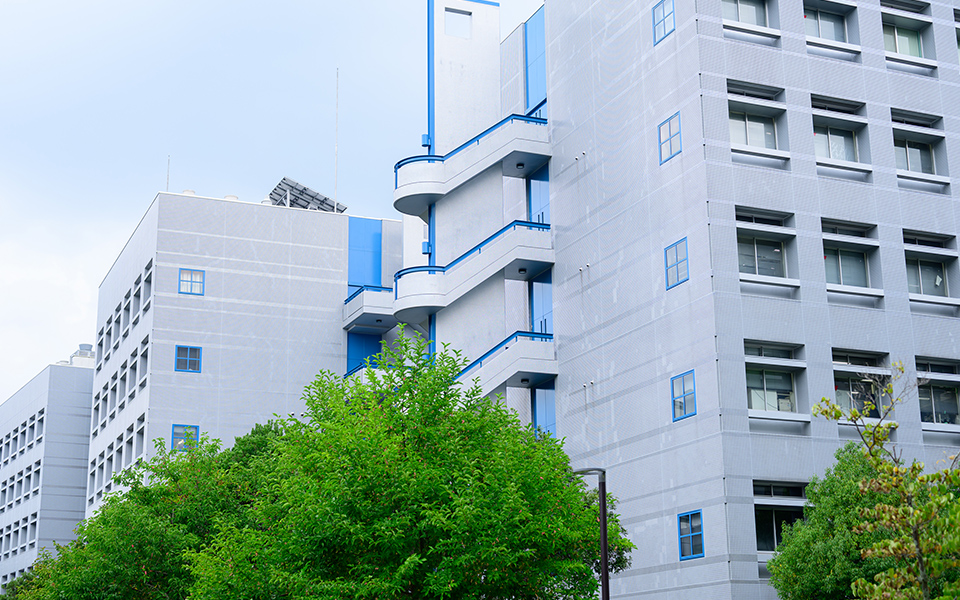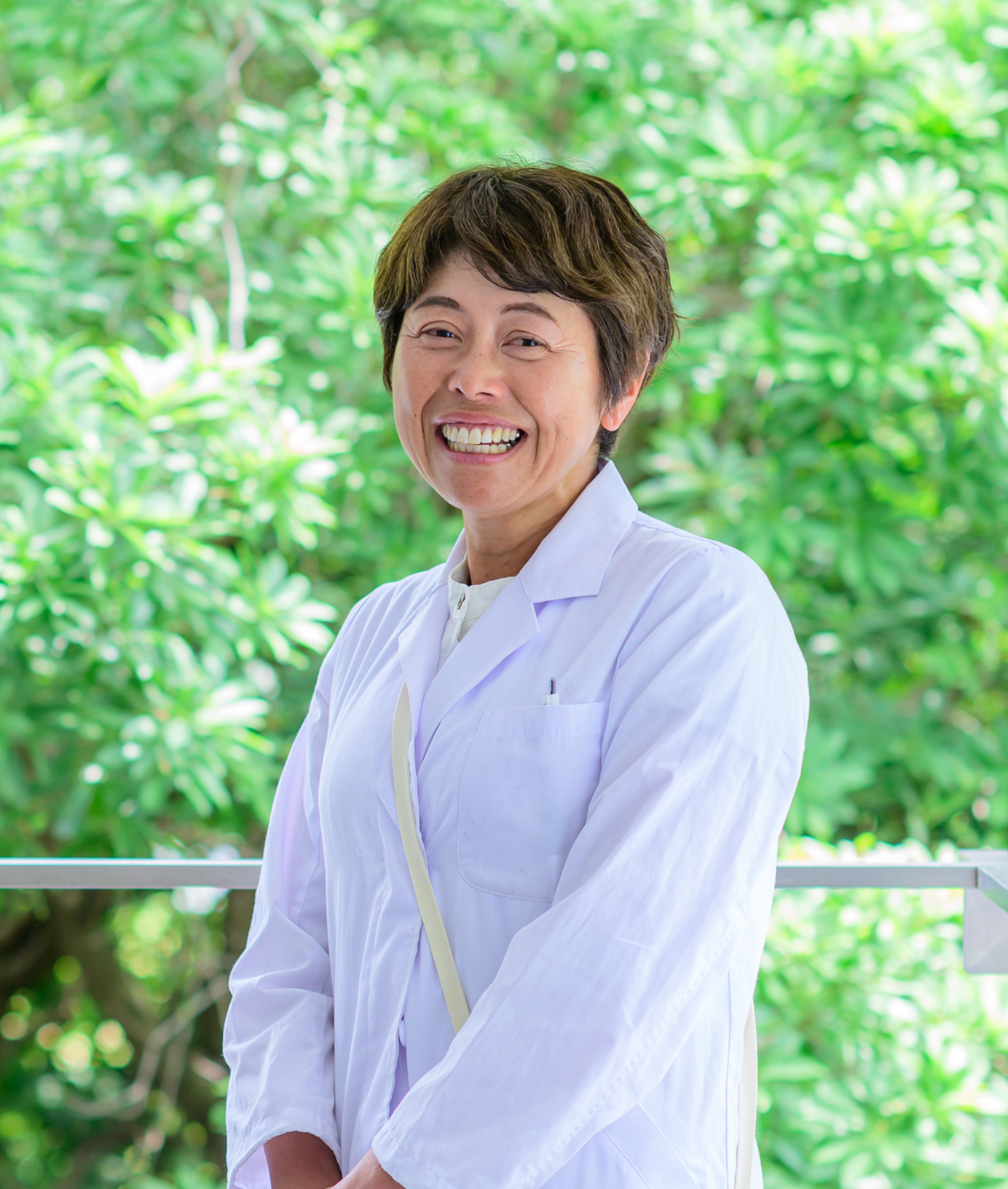Path to Becoming a Technical Staff Member
As a child, I was interested in astronomy. I entered a general high school and majored in science when I advanced to my second year. While I had hoped to work in a field related to space, I couldn't envision a career path after majoring in aerospace engineering. Also, I found chemistry fascinating at the time, so I entered the Department of Chemistry in the Faculty of Science and Engineering at university. I thought knowledge of chemistry would be useful in any field and would certainly help me find employment. My mother worked her entire life and often told me, “Women should have a job skill” and “Don’t rely on men.” While I wanted to get married, I also wanted to be able to work on my own and support myself, not depend on someone else. People around me suggested becoming a nurse or pharmacist, but I heard it so often that I deliberately chose a different path. Studying chemistry, which I chose myself, was incredibly enjoyable.
During job hunting, I thought civil servants might have an advantage since passing the initial tests was manageable. I took a civil service prep course offered at my university and aimed for a technical civil service position in chemistry. However, while administrative positions had many positions open, technical roles were scarce. Since I am from Nara, I looked at Nara Prefecture's positions, but there were no chemistry positions at all. So, I took the Kyoto Prefecture Local Civil Service Exam and the National Civil Service Type II Exam. I passed the first stage, but it was an employment ice age, and the number of positions was extremely limited, making passing the final stage very difficult. I also applied to Kobe Customs and Osaka Customs, but ultimately got a job as a technical staff member at a national university in the Kinki region. However, my main duties were administrative tasks like managing the laboratory's finances, and I could hardly do the technical work I had hoped for. So, in my second year, I submitted a request for transfer to the National Personnel Authority. Transfers for technical staff are quite rare, but an opportunity arose through an open recruitment at NAIST Material Technology Staff Office, and I took up the position in May 2000.
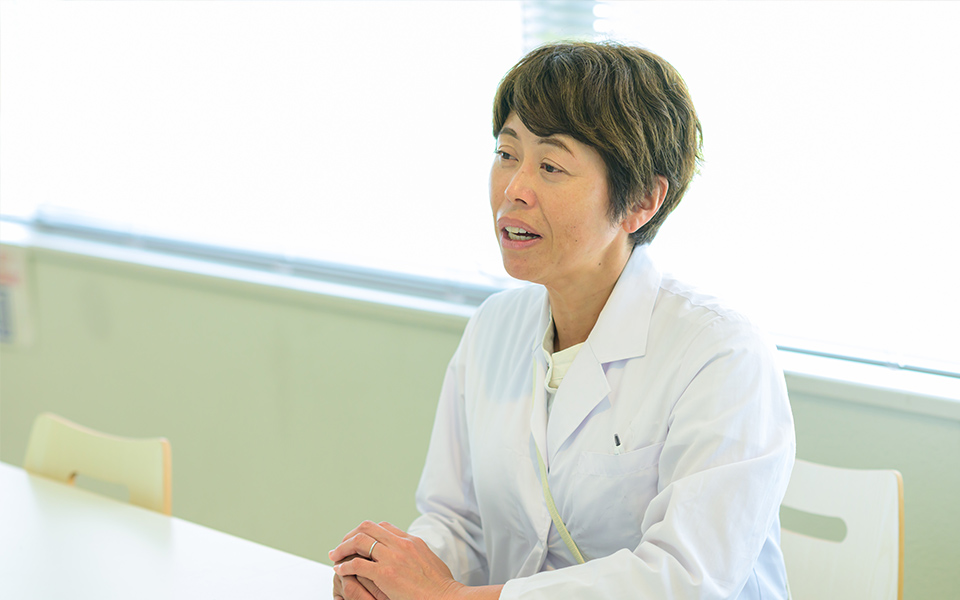
Background of Receiving the Minister of Education, Culture, Sports, Science and Technology Award for Research Support in the Science and Technology Field
There is a study group where technical staff from other universities gather to study and exchange ideas about mass spectrometry. It was through this group that I learned about the Minister of Education, Culture, Sports, Science and Technology Award for Research Support. When I looked into who had received it in the past, I found that a technical staff member I knew from another university had been awarded it. I thought that if I could win the award, it would make the evaluation of technical staff more visible. This visibility might lead to a budget being allocated to the Center for Materials Research Platform (CMP), potentially enabling the purchase of new mass spectrometry equipment. That's why I decided to try. The first year I intended to apply, I couldn't prepare the application documents in time. However, I did discuss my goal with Professor Uraoka, the CMP Center Director; Professor Kawai, the ARIM Project Implementation Manager; and Mr. Koike, the Manager of the Materials Section in the Technical Office. I told them, “There's this award, and I want to win it.” As I had a general grasp of what preparation was needed, I spent the next year organizing my achievements: co-authored papers, papers where my name appeared in acknowledgments, and oral presentations I'd given at research meetings and academic conferences. I decided to submit around the start of the new fiscal year. When I told Professor Uraoka, Professor Kawai, and Mr. Koike again that I wanted to apply, they carefully reviewed my application, arranged a meeting with the president, and helped me secure the university's recommendation for submission. I hadn't expected to receive it in my first year, so I was extremely happy to get the award notification in February.
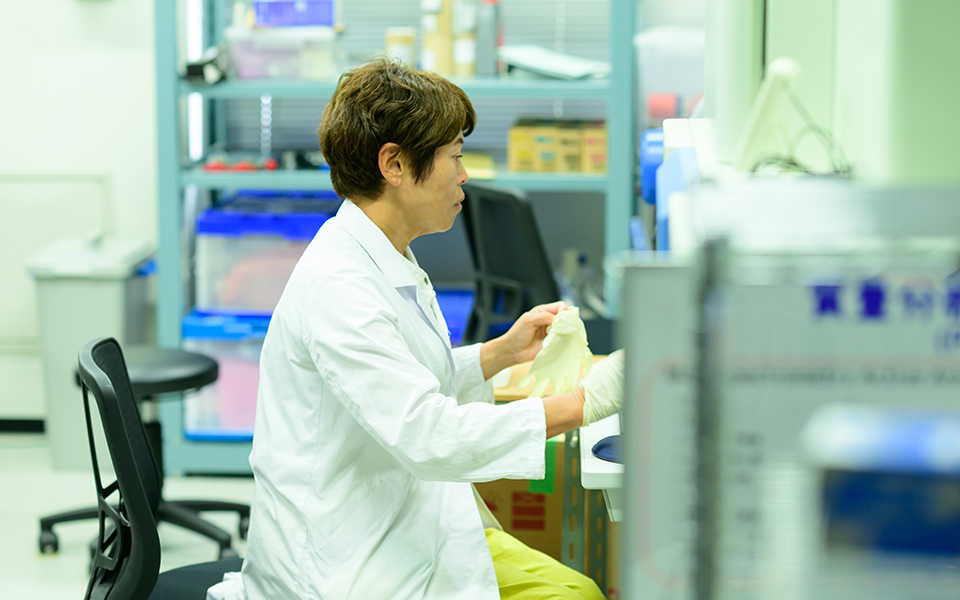
Daily Work and Work-Life Balance
My daily schedule isn't particularly fixed, but my main task is analyzing requests from both inside and outside the university. Sometimes the analysis involves simply performing measurements as instructed, while other times, if things don't go smoothly, I need to explore alternative methods. Among the students who have been instructed by faculty to submit requests, some seem to have a questionable understanding of why they are making the request. Therefore, to confirm the intent of the measurement, I often hold meetings to discuss things like, “Your team has used this type of instrument for this type of measurement before, but is that still acceptable for you?” or “We used this method previously, but why did you choose this method this time?” I consider these preliminary discussions to be very important.
I believe faculty members often request our services when they need precise mass measurements for paper submissions or when they have samples that are difficult to detect. For difficult-to-detect samples, we confirm the material properties during the preliminary discussions mentioned earlier and then try ionization methods, introduction methods, and adjustment methods suited to those properties. Additionally, I handle common instrument training sessions for students, prepare reports for the monthly CMP Center meetings, and prepare for presentations at study groups like the Mass Spectrometry Technicians Study Group, the Instrument and Analysis Techniques Study Group, and the Mass Spectrometry Society.
During weekday lunch breaks, I take about 40 minutes starting at noon to walk around the campus with female faculty members from the Materials Science Division. I avoid overtime in the evenings. After returning home, I take care of my child and go to bed by 10:30 PM. I gave birth to my first child in my fifth year at this university; that child is now a university student living independently. My younger child is still in junior high school, so I handle meal preparation and driving her to and from extracurricular activities in the evenings. Since she plays rugby, I attend matches on weekends and pursue my hobby of photography.
I think our university is wonderful because it makes balancing work and family incredibly easy. When my children were small, I made full use of every available system: early start shifts, nursing leave, and the system allowing me to leave early by reducing my 15 minutes lunch break. As technical staff handle individual tasks, I basically schedule presentation materials, requested analyses, and sessions for students myself. Since all technical staff handle their own work, no one ever frowned upon me taking time off, which made things much easier. However, when I had my first child, there was no substitute staff system; regular staff covered for me instead. During my one-year childcare leave, my colleague Mr. Katao took over my mass spectrometer duties in addition to his own equipment responsibilities. I imagine that was quite demanding for him. For my second child, Professor Kawai, who was overseeing the technical staff office at the time, stated, “Women may take leave for childbirth, so we should assign assistants.” Thanks to this, technical assistants were assigned several years before my second child's birth. This preparation allowed me to delegate all request analyses to the technical assistant during my second childcare leave period.
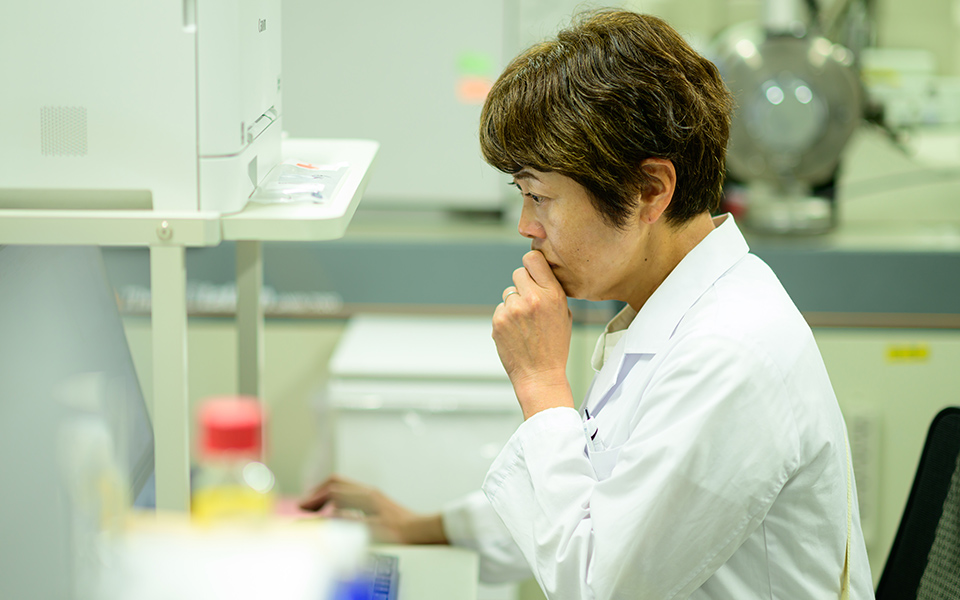
Research Environment and Challenges at Our University
This interview series has only featured researchers so far, hasn't it? I think this reflects a common perception that universities are run solely by faculty and administrative staff. I wish they would listen more to the opinions of technical staff. I've even brought this up during the president's office hours twice. I wonder why not a single technical staff member is included in the annual policy statement at the start of the fiscal year, which introduces “this year's vision for our university, along with the heads of centers, administrative staff, and board members.” While I do feel opportunities to hear from technical staff have increased recently, I hope they become even more frequent. I want to improve our university together, and I'm sure the Technical Office staff feel the same way. I wish they wouldn't leave us out in the cold; they could definitely make better use of our capabilities. I also wish we could exchange more ideas with faculty, administrative staffs, and URAs. Division for Industry-Government-Academia Collaboration and Technical Services Office work must have significant overlap. At other universities, technical staff are sometimes seconded to the administrative office as URAs. If young staff who understand the administrative office's operations returned to the Technical Office, it would surely invigorate us. Because they would gain a deeper understanding of the university. That's something you can't easily grasp just by doing technical staff work.
Personally, I've never faced any difficulties due to being a woman. While the Technical Office has many male staff, not a single person exhibits power harassment or sexual harassment tendencies—they are truly outstanding. Furthermore, most faculty in the Materials Science field treat us with genuine respect. I believe this stems from Professor Kakiuchi, a former council member who championed the early recruitment of technical staff in Materials Science, and the fact that the Materials Technical Staff Office operates as an independent department. In terms of facilities, the lack of an ATM is inconvenient. Back in the day, the Foundation for NAIST next door had both a bank and a post office, but both are gone now. So, withdrawing cash is a hassle. I mean, can you imagine a national university without a post office?
